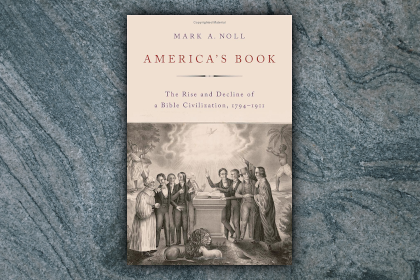Fundamentalists and Theater: Act Three, Say What?

In spite of my perplexity about theater, the truth is that occasionally I still see it. I am assaulted with it on airliners. I am exposed to it in other people’s homes. Other circumstances also arise.
One of the most frequent is when some friend insists that if only I watch a particular film, then I will instantly grasp the value of theater and its ability to cast light upon the human condition. Not often do I find such an offer intriguing. One instance when I was intrigued was the release of Peter Jackson’s version of The Lord of the Rings. Copies of the film were placed in my hands. Friends assured me that Jackson’s work would withstand any reservations that I might harbor. What is more, my daughter was writing a thesis for her degree in aesthetics, focusing particularly upon the difference between epic (the written story) and theater (the enacted story). We were both familiar with the details of Tolkien’s work, and the comparison of Tolkien’s books to Jackson’s movies was too tempting a laboratory to resist.
I had not watched a movie, even on television, for—I’m not sure, but it had been a long time. Viewing Jackson’s work was almost like coming to the medium for the first time. It was powerfully engaging, and I asked myself wherein that power lay.
The first answer came to me in the word spectacle. The beauty of the Shire, the towering menace of Orthanc, the peril of the Eye, the swarming armies of orcs, Legolas rapid‐firing arrows while “skateboarding” down the steps at Helm’s Deep: these are all exhibitions of the spectacular. They are also a nullification of imagination, for by definition what is seen is not imagined. Much of the power of theater (especially in its cinematic permutations) lies in the ability of spectacle to grip a spectator. In this respect, theater works in almost exactly the opposite direction from epic.
I also found that theater was engaging by its immediacy. Reading a text always involves a significant element of analysis and distancing. The act of reading is inductive and analytical. Theater, however, involves a constant stream of direct perceptions. These perceptions are given so rapidly that analysis is replaced by absorption. The distance between production and viewer is much less than the distance between text and reader. A written story constructs a world so as to isolate some aspect of reality for contemplation and examination. The enacted story surrounds the viewer with an artificial world in order to evoke a visceral reaction. At times, the viewer even forgets that he is observing. He goes out of himself and becomes a participant in the action. In short, well‐done theater lends itself to the Dionysian, while text lends itself to the Apollonian.
The immediacy of theater implies that it operates fundamentally at a sub‐reflective level. It aims for a “gut” reaction; it appeals to the koilia (the belly, used by the Greeks as a metaphor for the appetites or passions). A competent director does not want his audience to think. He wants his audience to feel, and to feel at some primeval and instinctual level. Any element of thinking will come afterwards, after the appetites have been excited and the passions have been captured. Theater trades in flushes of fear, lust, pity, revulsion, vengeance, pride, and other appetites that can be evoked rapidly and moved so strongly as to overwhelm or circumvent the reason. Whenever theater appeals to the contemplative, reflective capacity of the viewer, it begins to fail as theater.
Theater is particularly sub‐reflective in the way that it communicates moral vision. Tolkien’s epic is fundamentally a morality tale that takes place in a highly structured moral universe. Jackson’s film, however, lacks a significant moral compass. Jackson is unable to provide any vision of justice or right that rises above the assertion of personal autonomy. This lack of a moral base shifts the meaning of nearly everything in his tale. To cite only one example, Aragorn is degraded from a finite but messianic savior‐figure into a tortured postmodern, beset by angst and ambiguity.
Of course, Jackson does not invite the viewer to think about the significant moral difference between his version of the story and Tolkien’s. Instead, the viewer is simply drawn into Jackson’s moral vision. As I viewed the movie, I found my own moral sense being forced to conform to Jackson’s in order to keep the story coherent.
The experience reminded me of watching The Dead Zone during the mid‐1980s. In that movie, a psychic discovers that a certain politician, if elected to the presidency, will start World War Three. In order to prevent the war, the psychic determines to assassinate the politician. I recall how unnerved I was when I realized that I was hoping for the assassination to succeed. I actually desired a thing to occur in the world of the movie that I would instantly have condemned in the real world. I had adopted this moral perspective without ever considering it or reflecting upon its consequences. Though I was a teacher in a Bible college, a well‐crafted movie was able to make me yearn for a murder. It was unnerving.
The foregoing observations lead to two questions. The first is whether my experience is merely idiosyncratic. This is where the secular conversation about theater is important. Secular philosophers have often disagreed about how useful theater is and about what it ought to be used for, but their conclusions about how it works are strikingly similar. What is more, my own experience accords with what they have written. My experience does not seem to be unique.
Therefore, I suggest that Christians cannot carry on a useful discussion about the usefulness or morality of theater while ignoring this conversation. We must become reflective about our own experiences and knowledgeable about the best that has been thought and written on the subject. Unless we are willing to understand how theater works, we have no way of knowing which biblical principles might come to bear on the question. There is no point in quoting verses until we have some way to guess which verses might be relevant.
Second, we need to ask the substantive question: what use may a Christian properly make of theater? Given the manner in which it communicates, is it capable of rightly expressing Christian truth and eliciting Christian commitment? Can we use enacted story to do the Lord’s work? For that matter, should we subject ourselves to theater at all?
I do not intend to answer the substantive questions now. What I hope to do is to provide the groundwork for a meaningful conversation. Such a conversation has to go beyond asking, “What Bible verses do you have?” We must first take seriously the question about what theater does to people. We must answer that question in two ways: first, by paying close and candid attention to what theater does to us, and second, by knowing the conversation about the nature of theater.
Let me put it this way: if you don’t even know how the distinction between the Dionysian and the Apollonian enters this debate, then why should you think that you can contribute more than prattle? Why should anyone trust your judgment when you say that no biblical principle forbids the theater? You do not know what you are talking about.
I have asked for someone to convince me that theater as a medium is legitimate for Christians. If you can convince me, then I shall be eternally indebted to you. If you are going to convince me, however, here is the first thing that you are going to have to do. You must show me that you have understood how theater communicates. You must know and respond to the aesthetic conversation. Once you have done that, then we will be in a position to get down to the really important considerations. But more on that later.
O How Shall I Receive Thee?
Paul Gerhardt (1653)Tr. Johan Christian Fredrick Haeffner (1808)
O how shall I receive Thee,
How greet Thee, Lord, aright?
All nations long to see Thee,
My Hope, my heart’s Delight!
O kindle, Lord, most holy,
Thy lamp within my breast,
To do in spirit lowly
All that may please Thee best.
Thy Zion palms is strewing,
And branches fresh and fair;
My heart, its powers renewing,
An anthem shall prepare.
My soul puts off her sadness
Thy glories to proclaim;
With all her strength and gladness
She fain would serve Thy Name.
I lay in fetters groaning,
Thou com’st to set me free;
I stood, my shame bemoaning,
Thou com’st to honor me.
A glory Thou dost give me,
A treasure safe on high,
That will not fail nor leave me
As earthly riches fly.
Love caused Thine incarnation
Love brought Thee down to me;
Thy thirst for my salvation
Procured my liberty.
O love beyond all telling,
That led Thee to embrace,
In love all love excelling,
Our lost and fallen race!
Rejoice, then, ye sad‐hearted,
Who sit in deepest gloom,
Who mourn o’er joys departed,
And tremble at your doom:
He Who alone can cheer you,
Is standing at the door;
He brings His pity near you,
And bids you weep no more. –––––-
–––––-
- 1 view

Discussion